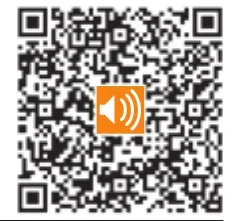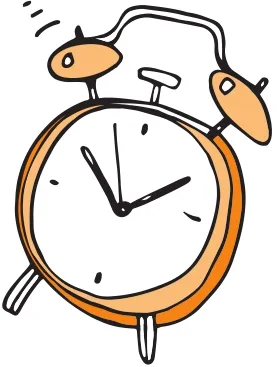口语步步高(九)
张新峰供稿
口语步步高(九)
张新峰供稿

一 功能口语
1 表达感情
人类的感情是非常丰富的——喜怒忧思悲恐惊,这些感情你都体会过吧?那么你能将喜悦、焦虑与惊奇等情绪准确地表达出来吗?
常考口语
1. 喜悦
I’m glad to… 我很高兴……
That’s nice! 太好了!
That’s great! 太棒了!


2. 焦虑
What’s wrong? 怎么啦?
What’s the matter with you? 你怎么啦?I’m worried. 我很焦虑。
Oh, what shall I do? 噢,我该怎么办啊?
3. 惊奇
Really? 真的吗?
Oh, dear! 啊,天呐!
Is that so? 是那么回事儿啊?
免费套餐
I’m pleased/happy to... 我很高兴……
That’s wonderful! 好极了!
What shall we do? 我们该怎么办啊?
I’m worried about… 我担心……
I’m really worried about the exam. 我真的很担心这场考试。
快乐剧场
Old Woman: Oh, dear! What shall I do?
Wang Yuan: Ma’am, what’s wrong with you?
Old Woman: I came to see my daughter here. But I’m not familiar with this city. I can’t find her home now.
Wang Yuan: Is that so? What’s the matter with this little girl?
Old Woman: She’s my granddaughter. She’s got a fever on the train. And she hasn’t had anything since yesterday evening.
Wang Yuan: Don’t worry, Ma’am. I can help you. Let’s take her to see a doctor first. Then we will find your daughter.
Old Woman: Thank you, kid. You are very helpful.
Wang Yuan: It’s my pleasure. I’m glad to help you.

背景知识
1) 人们在遇到麻烦时,常说“What shall I do?”以表示自己的焦虑与无可奈何。
2)“What’s wrong/the matter/the trouble?”用于对正在焦虑或处于困境的人表示关心,意为“你怎么啦?”。
3)“Don’t worry.”用来安慰正在着急的人。
4) 当要表示惊讶、庆幸或难以置信时,可用“Is that so?(是那么回事儿啊?)”。
2请求
我们常用祈使句或问句请求别人做某事或不做某事,但祈使句往往含有命令成分,因此要特别注意说话时的语气和态度,尤其是在使用否定祈使句提出请求时。
常考口语
Can you...for me? 你能为我……吗?
Will/Would you please...? 请你/您……好吗?
May I...? 我可以……吗?
Please give/pass me... 请把……给/递给我。
Please stand in line/line up. 请排队。
Please hurry. 请快点。

免费套餐
Do you mind if I ask you a favor? 我可以请您帮个忙吗?
Could you pass the salt, please? 能请您把盐拿过来吗?
Would you give me a call? 您能给我打个电话吗?
快乐剧场
Monitor: Please come into the classroom, everyone. Oh, don’t rush,
will you? No noise, please. I’ve got something to say.
Class: What is it?
Monitor: Tomorrow is Tree Planting Day. We’re going to plant
trees along the riverbanks!
Class: Great!
Monitor: Please bring hoes[锄头]and buckets[水桶]to school tomorrow.
We’re going to meet on the playground at eight tomorrow morning. Is that ok? Class: Yes, monitor.
Monitor: And please don’t be late tomorrow, everyone.

背景知识
1)“What would you like me to do?”中的“would”和“Could you do me a favour?”中的“could”在表示请求时,比“will”和“can”更为礼貌、委婉。
2)“Will/Would you please…?”是一种非常礼貌的请求形式,相当于汉语里的“请你/您……好吗?”。
3) 否定祈使句表示请求,有着强烈的命令语气。同学们可以在句末添上附加疑问句“will you”或使用礼貌词“please”来削弱命令语气。
4)“May I…?”用于表示请求时,只用于第一人称。如“May I have this seat?(我能坐这个位子吗?)”。
二 口语一点通
1Any time. 随时为您效劳。
分析 在帮了他人的忙并收到感谢时,我们可以用这句话表示自己很乐于提供帮助。本句原意为“任何时候”,后引申为“任何时候都可以帮忙”。另外,类似用语还有“be at one’s disposal(遂某人之意)”和“be at one’s command(照某人吩咐)”。如:
— Thanks for helping me move into my new house. 感谢你帮我搬新家。
— Any time. I’m just glad I could help. 随时为你效劳。能帮上忙,我也很高兴。
2So it seems. 好像就是如此。
分析 当我们认为他人所陈述的事情与事实相差不远时,即可使用本句,意为“看起来好像就是这个样子”。亦可将“so”置于句末,句意不变。还可以说“It seems that way.”。如:
— Mr. Wang, I want to apologize for being late again this morning. I just can’t get up in time for work. 王先生,我要为今早又一次迟到道歉。我就是做不到及时起床上班。
— So it seems. And what are you going to do about that?
好像真是如此。那么你打算怎么做呢?
— I guess I’ll have to buy a new alarm clock. 我想我必须买个新闹钟了。

3What’s new? 近况如何?
分析 这是极为通俗的问候语,同学们可别译成“什么是新的?”哦。另外,“What’s up?”也有同样的用法。如:
— Hi, Kelly! What’s new? 嗨,凯莉!最近怎么样?
— My father told us that we’ll soon be moving. 我父亲说我们很快便会搬家。
— That’s awful! 那真糟糕!
— Uh...why? 呃……为什么?
— I won’t have anyone to make fun of anymore. 我再也没有可取笑的对象了。
4Where to? 要去哪儿?
分析 本句是非常简洁实用的口语,相当于“Where are you going?”。如:
— Where to, Jimmy? 吉米,你去哪儿啊?
— I’m going to the library. 我正要去图书馆。
5What for? 为什么要这样?
分析 这句话其实就是“Why?”的意思,句子复杂时也可用“What...for...?”的句型来替代。如:
— Excuse me. May I take a picture of you? 对不起,我可以给你拍张照片吗?
— What for? 做什么用呢?
6Let me see. 让我想一想;让我查看一下。
分析 这句话通常用来请别人稍待一下,以让自己有时间去回想、思考或查证。如:
— May I help you? 需要我效劳吗?
— Yes. I’m a transit passenger[中转旅客]for this flight. Can you tell me where to go?是的,我是这班飞机的中转旅客,你能告诉我该往哪儿走吗?
— Let me see. Oh, you’re at the wrong gate. Please be sure to enter at boarding gate No. 8 for your flight. 让我看看。哦,您走错门了。您的班机是从第八号登机口登机的。
— Really? I hope it hasn’t left. 真的吗?希望它还没起飞。
— Don’t worry. Just follow me. 不要担心,请跟我来。
- 疯狂英语·初中天地的其它文章
- 天下奇闻
- 大 鱼
- 马儿也是钢琴师
- 琴声悠扬,为妈妈弹奏
- 弹琴
——不只是舞动你的手指 - 偷曲奇的贼

